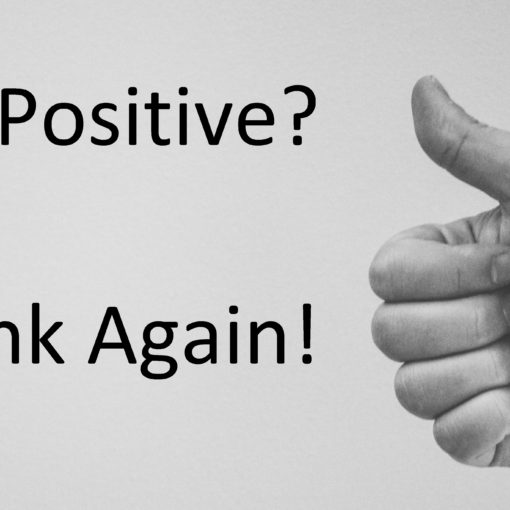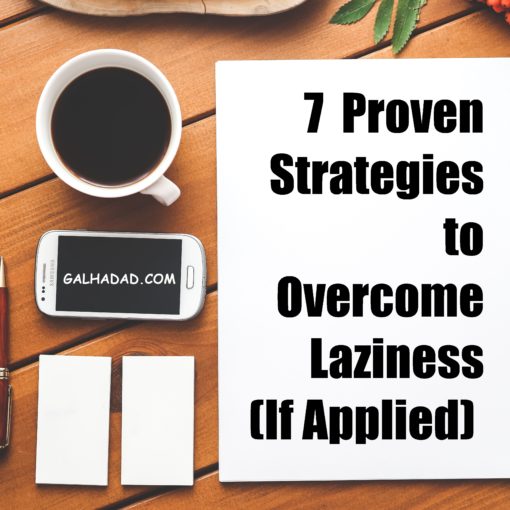
Aren’t you tired of putting things off, revising deadlines and changing goals all the time?
Aren’t you tired of delaying your dreams for instant pleasures, wasting time on empty things that don’t matter?
I bet you are.
You are not alone.
In this article, I will teach you how to beat it forever.
No, it’s not that you don’t believe in yourself enough and that you’re a naturally lazy person.
Those are excuses I heard 10 years ago which didn’t help me at all.
I’ve spent years procrastinating, not doing what I was supposed to do, alternating between different tasks, replacing old goals with new ones.
I was frustrated. I felt lost.
So lost that I decided to go deeper and research why it is the way it is.
Why it is so easy to procrastinate and so hard to stick with something long-run?
There must be a reason. If you know me you surely know I love to go deeper and search the cause of the problems. It’s much better to attack the problem from its root than just covering the symptoms endlessly.
For some people, it might be easier than others, sure, but there is ONE simple thing that is always there when it comes to procrastination.
One particular specific thing that determines whether or not you’re going to stick with something or neglect it and move on.
And that one thing is…
Dopamine (or lack of it)
Dopamine is a neurotransmitter in your nervous system that encourages you to act in the world.
It is the motivation molecule that is accountable for you getting warm, motivated and fired up any time you move forward toward a goal that you value.
The problem arises when we “think” we want something, but deep down we don’t REALLY want it.
What do I mean by that?
To actually want something means that the goal you’ve set is highly ingrained in your nervous system, specifically the dopaminergic system of reward. It’s so inherent that each step forward you take in that particular direction (toward that goal) will produce a dopamine release that will make you feel good and keen to continue to move forward.
You become obsessed with that goal. Your life starts to revolve around it.
For example, if you’re super hungry in the wild, you need to eat and you saw an apple tree in front of you and there’s nothing else you can eat… Guess what will happen to you?
First of all, since we’re visual-oriented creatures the first sight of the apple will produce a first dopamine spike that will make your from-now-on actions revolving solely about getting that apple. Your focus will revolve around the apple, your existence will revolve around the apple thus any action you’d take will be directly or indirectly influenced by that goal.
Second, each step closer you get to that apple tree makes you release more and more dopamine until finally, you reach the apple and that is the biggest shot of dopamine, you feel great.
This is the known “Yeah, I got it” feeling we’re all familiar with when we get what we want, win in a game and so on.
Sounds like a great feeling, isn’t it?
So… What’s the problem and how dopamine relates to procrastination?
Great question.
Here we go…
Procrastination happens when there’s not enough dopamine available for a particular goal.
-Gal Hadad
Under this fundamental assumption, I couldn’t help but put my finger on 3 reasons for that to happen:
- Distractions
- Unclear goals
- Inability to recognize the direct, causal relationship between your current efforts and your future happiness
1) When we have too many distractions
This was the first that came to my mind. I can clearly see how distractions can lead to procrastination.
If there are so many distractions, they have the potential to get you off track.
Distractions directly interfere with your limited dopamine-production by literally “taking away” the few, valuable dopamines nature gave you for “themselves” instead of to your goal.
Dopamine is limited. Choose wisely where you “spend it”.
If you spend all of your dopamine, aka motivation molecule, on Video Games, TV, Netflix, Porn – Guess what? You’re going to have less of your biological capacity to motivate yourself toward other goals (that are probably more important to you).
I don’t need to go further on how the western culture we live in is over-stimulating. Wherever you go, they’re trying to manipulate your behavior by throwing at you irresistible, highly addictive dopamine inducing things. You gotta protect yourself.
Solution:
Eliminate distractions. As simple as that. Some ideas to start with might be:
- Quit social media
- Quit drugs
- Quit addictive substances
- Quit porn
- Quit alcohol
- Quit TV/Netflix
- Quit binging on YouTube, and junk food
When you quit addictions, you leave more room for your nervous system to encourage you to chase the goals that actually matter, in the form of dopamine release.
2) When the goal itself is unclear
When your goal is unclear – your dopaminergic system doesn’t function properly hence making it harder for you to stick with it. Kind of “you don’t know where you’re going”. It’s only when you KNOW, deep down, where you’re going – that you’re going to experience the effects of dopamine that will ensure your commitment.
When the goal isn’t clear – you don’t know where you’re actually going.
When you don’t know where you’re going precisely – why would your brain release dopamine? Dopamine is released when a visible, clear vision is in sight. You have to see it to want it. If it’s vague words, guess what – you’re going nowhere. Your mind needs a solid, visible goal that he can actually relate to in terms of dopamine release.
Solution:
Very simple.
Clarify your goal. Make it less foggy.
Make the goal as clear and unclouded as possible.
A goal that you can actually relate to and is easy for you to imagine. A good rule of thumb to follow – if you can’t subdivide the goal into smaller pieces that could be beaten in a matter of days, your goal is too ambiguous and foggy, and you need to clarify, specify, and simplify that goal.
3) When it’s unclear to you how the goal is actually going to increase your happiness in the future
This is when we are unable to actually realize or perceive the connection between chasing the goal and our future happiness as a consequence of that chase.
When it’s unclear to you how the goal can increase your levels of happiness in the future you simply won’t stick with the goal. It’s only when you truly understand how reaching your goal is actually going to increase your happiness and you believe it to be true that you commit. Since it’s hard for many people (who are low in conscientiousness, as I am) to associate between the sacrifice of the now and the happiness of tomorrow – procrastination is a fairly natural reaction.
Solution:
Write down some well-articulated, well-defined implications of reaching your goal – how it’s going to change your life for the btter.
Prove yourself that having X, Y & Z will actually increase your future happiness by thinking specifically about the direct impact of X Y & Z on your life. Visualize it and spend time thinking about the direct causal relationship between your present effort and your future dividends.
Putting it All Together
As you can see, there is a limiting factor in the brain – Dopamine.
This neurotransmitter has the capacity to motivate us toward a goal.
We can either run out of dopamine by addictions and distractions, or we can ineffectively tunnel those dopamines in the wrong direction due to unclear goals or inability to recognize causal relationship between current efforts and future reward as a consequence.
All we can do is remove distractions, clarify our goals and spend time better visualize the way those goals will improve our future.
Until next time,
-Gal.




2 thoughts on “The Real Reasons Behind Procrastination & How to Beat It Forever”
Mel Robbins on procrastination:
https://youtu.be/CFu_58AnT0g
Thanks for sharing, Lisa!
For those of you who are too lazy to open the video I’ll provide a quick summary:
Mel claims that procrastination is a form of stress relief and it’s not different from smoking when we go through hard times in the sense that it serves as an escape from reality. When we’re stressed out for whatever reason we give ourselves a breakup by procrastinating and not doing the tasks we should be doing.
Her solution is both practical and based on research –
Act on the first 5 seconds and simply say: “I am going to write ONLY for 5 minutes”
80% will keep going and that’s the amazing thing – just make sure you go through the starting point and by that you significantly increase the likelihood of getting it done completely.
Very helpful advice. Thanks again.